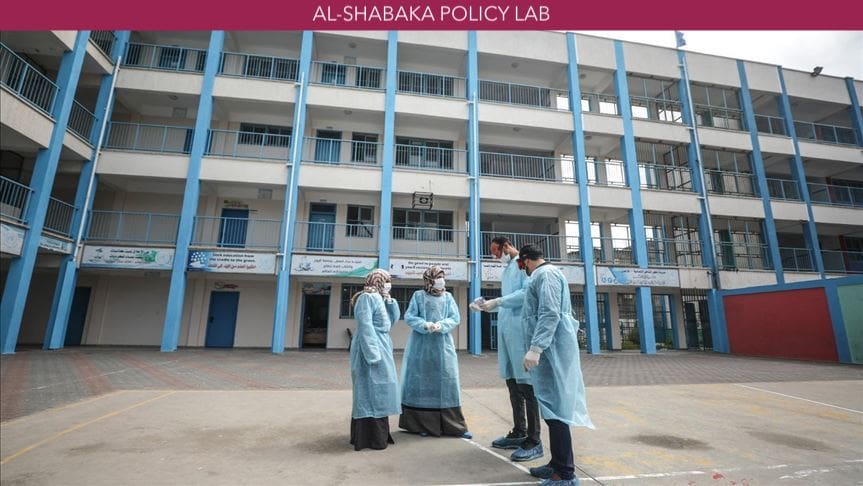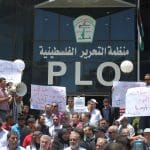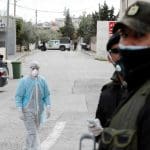
The COVID-19 pandemic has reached Palestine, and in doing so has brought to the surface latent power structures that render Palestinians particularly exposed to the virus.
In this policy lab, Al-Shabaka speaks with analysts Yara Asi and Osama Tanous about the Palestinian health system’s capacity to handle a pandemic, the myths of Gaza’s exceptionalism, and the ways in which Israel’s settler-colonial project has re-shaped Palestinian bodies, as well as their nutrition and surrounding environments, to render them most vulnerable to health crises such as this.
Dr. Yara M. Asi is an Assistant Professor at the University of Central Florida in the School of Global Health Management and Informatics. Her research agenda focuses on global health, human rights, and development in fragile populations. She is a Non-resident Fellow at the Arab Center Washington DC, a 2020-2021 Fulbright US Scholar to the West Bank, the Fall 2021 US Fellow at Al Shabaka Palestinian Policy Network, and the co-chair of the Palestine Health Justice Working Group in the American Public Health Association. Along with working at one of the first accountable care organizations in the United States, she has also worked with Amnesty International USA and the Palestinian American Research Center on policy and outreach issues. She has presented at multiple national and international conferences on topics related to global health, food security, health informatics, and women in healthcare, and has published extensively on health and well-being in fragile and conflict-affected populations in journal articles and book chapters. Her work has also been featured in The Washington Post, The Guardian, The Nation, +972 Magazine, The Conversation, Al Jazeera, The World, and other outlets. Her forthcoming book with Johns Hopkins University Press will examine war as a public health crisis.
Al-Shabaka Member Osama Tanous is a specialized pediatrician based in Haifa. He is currently pursuing a Masters in Public Health and is a researcher for the Galilee Society: The Arab National Society for Health, Research and Services. Osama is a 2020 candidate for the Fulbright Hubert Humphrey fellowship in public health and health policies. His research interests include structural violence and health disparities.
















